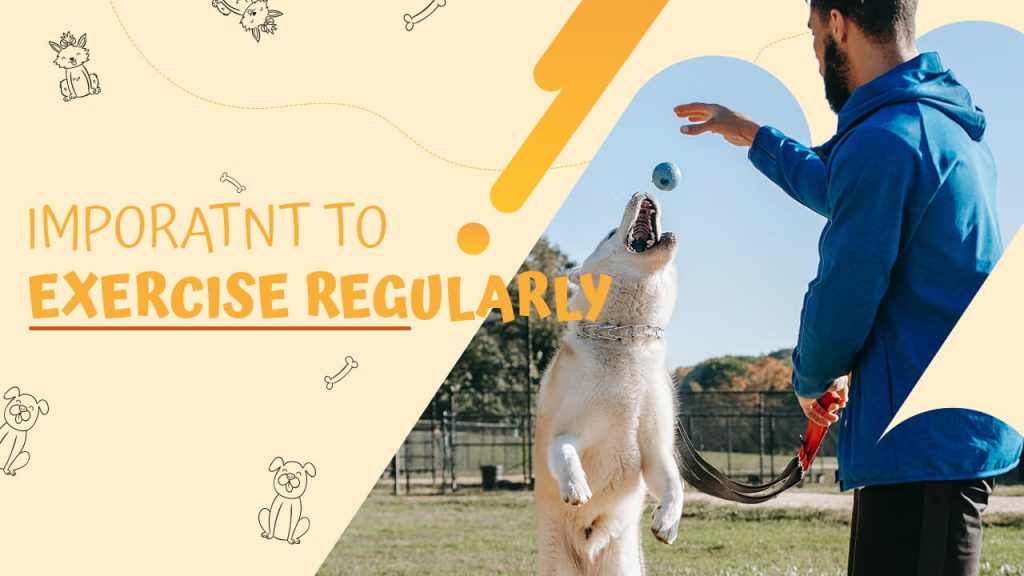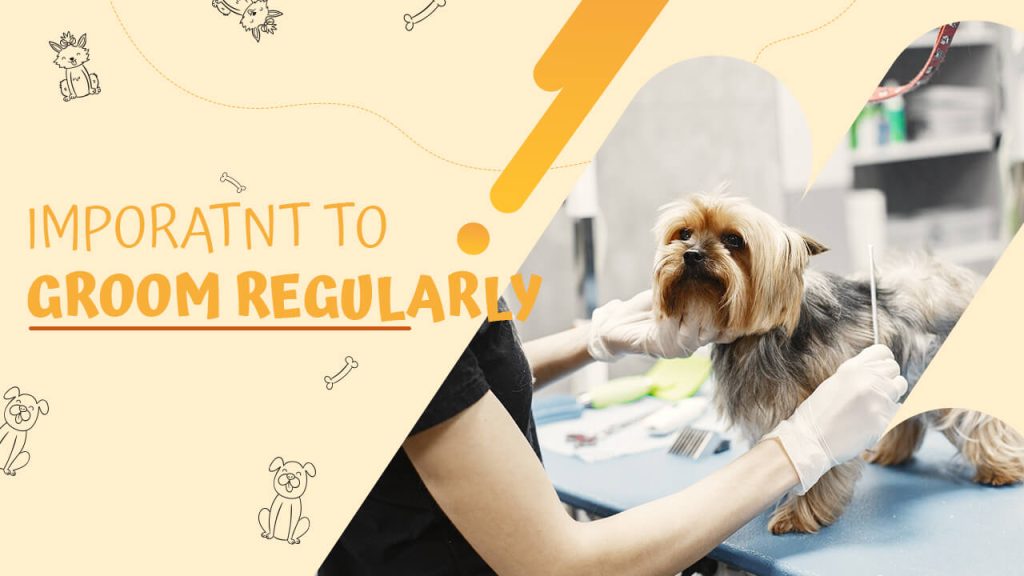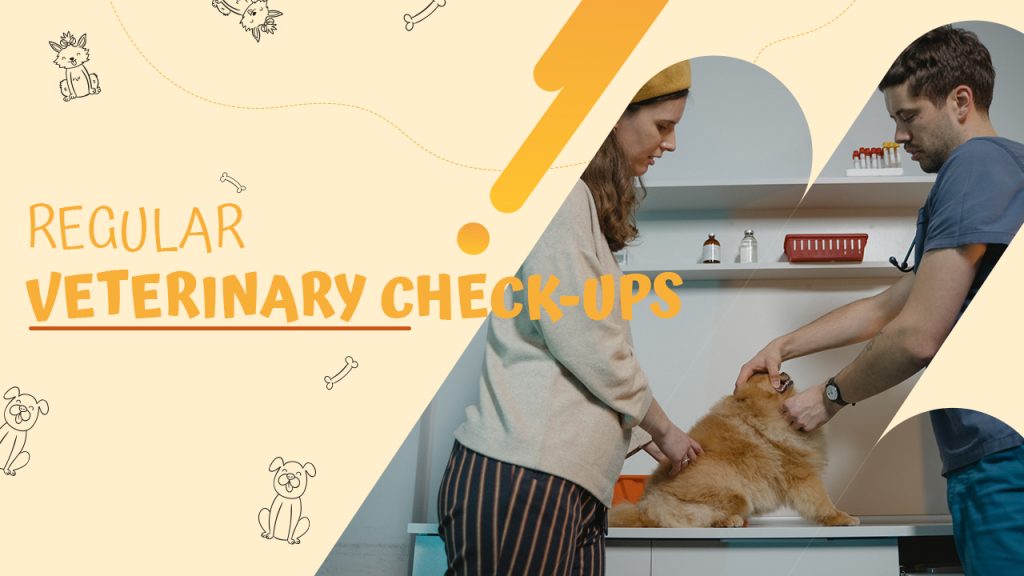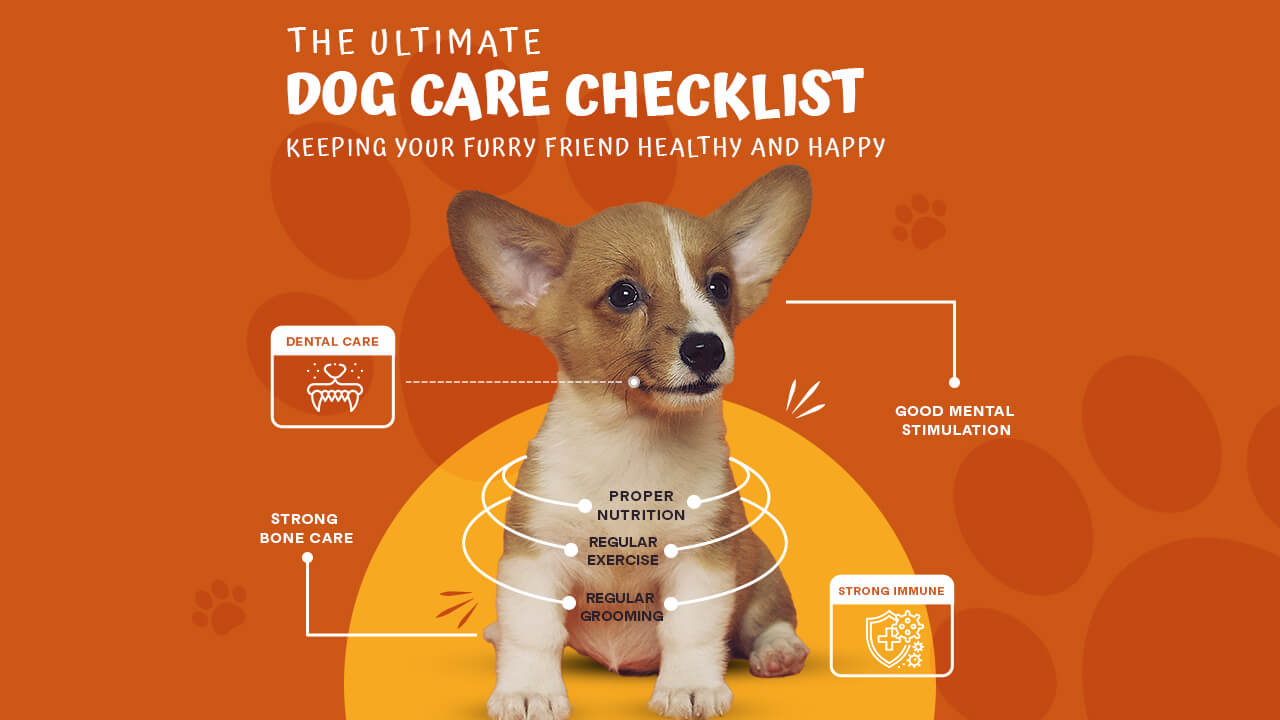Dog care is a vital aspect of being a responsible pet owner. Providing your furry friend with the necessary care and attention they need is essential for their physical and mental well-being. From providing proper nutrition to regular exercise and veterinary check-ups, there are various factors to consider when it comes to taking care of your dog. In this article, we will discuss some essential aspects of dog care that every pet owner should know about.
Table of Contents
- Provide Proper Nutrition
- Exercise Regularly
- Groom Regularly
- Provide Mental Stimulation
- Regular Veterinary Check-ups
- People also search few best dog care product
Provide Proper Nutrition

Proper nutrition is an essential aspect of dog care, and it plays a vital role in maintaining your dog’s overall health and well-being. As a responsible dog owner, it is your responsibility to ensure that your furry friend is receiving the proper nutrition they need to thrive. In this dog care guide, we will discuss the key elements of a dog’s proper nutrition.
First and foremost, a dog’s diet should be balanced and complete. This means that it should contain all the essential nutrients, such as proteins, carbohydrates, fats, vitamins, and minerals, in the right proportions. A high-quality commercial dog food that meets the standards set by the Association of American Feed Control Officials (AAFCO) is an excellent option.
When choosing a dog food, it’s essential to consider your dog’s age, size, and activity level. Puppies have different nutritional requirements than adult dogs, and larger dogs need more calories than smaller ones. Your veterinarian can help you determine the appropriate type and amount of food for your dog.
In addition to commercial dog food, you can also supplement your dog’s diet with fresh fruits and vegetables. However, it’s important to avoid feeding them toxic foods like grapes, raisins, chocolate, and onions.
Finally, it’s essential to monitor your dog’s weight and adjust its diet as necessary. Obesity is a common problem among dogs, and it can lead to various health issues. Regular exercise and portion control can help maintain a healthy weight for your furry friend.
In conclusion, providing your dog with proper nutrition is a crucial part of dog care and puppy care. A balanced and complete diet, tailored to your dog’s individual needs, is key to ensuring that they lead a healthy and happy life. With the right diet, your furry friend will have the energy and vitality to enjoy your time together. Consult with your veterinarian to determine the best type and amount of food for your dog.
Exercise Regularly

Regular exercise is a crucial part of dog care and puppy care. Exercise not only helps keep your furry friend physically fit but also provides them with mental stimulation and helps prevent behavioral problems. However, not all exercises are suitable for all dogs. In this dog care guide, we will discuss the types of exercises that dogs should follow regularly.
Firstly, dogs need daily walks to meet their exercise needs. A brisk walk for at least 30 minutes a day is recommended for most dogs. Puppies, on the other hand, need shorter and more frequent walks due to their smaller size and growing bones.
Secondly, dogs love to play and interact with their owners, making games like fetch or tug-of-war excellent exercises for them. These games not only provide physical exercise but also strengthen the bond between you and your furry friend.
Thirdly, swimming is a low-impact exercise that is excellent for dogs with joint problems or those recovering from injuries. However, not all dogs are natural swimmers, so it’s essential to introduce them to water gradually.
Fourthly, running or jogging is an excellent form of exercise for active dogs. However, it’s important to build up your dog’s endurance gradually and avoid exercising during extreme weather conditions.
Fifthly, training and obedience classes not only provide mental stimulation but also help improve your dog’s behavior and socialization skills. These classes are an excellent opportunity to bond with your furry friend while providing them with exercise and mental stimulation.
Finally, it’s important to remember that all dogs are unique and have different exercise needs. Consult with your veterinarian to determine the appropriate type and amount of exercise for your furry friend.
In conclusion, regular exercise is essential for your dog’s physical and mental well-being. By incorporating different types of exercises into their routine, you can ensure that your furry friend receives the exercise and mental stimulation they need to live a happy and healthy life.
Groom Regularly

Regular grooming is an essential part of dog care and puppy care. Proper grooming not only helps keep your furry friend looking and smelling their best, but it also promotes their overall health and well-being. In this dog care guide, we will discuss the types of grooming that dogs need regularly.
Firstly, regular brushing is necessary to remove loose fur and prevent matting. The frequency of brushing depends on your dog’s coat type, but most dogs need brushing at least once a week. Brushing also helps distribute natural oils throughout your dog’s coat, keeping it healthy and shiny.
Secondly, regular baths help keep your dog’s coat and skin clean and free from dirt and bacteria. The frequency of bathing depends on your dog’s lifestyle and coat type, but most dogs need bathing every 2-3 months. It’s essential to use dog-specific shampoo to avoid drying out their skin.
Thirdly, keeping your dog’s nails trimmed is crucial to prevent overgrowth and potential injuries. Nails should be trimmed every 4-6 weeks, depending on how fast they grow. It’s important to use proper nail clippers and avoid cutting the quick, vein that runs through the nail.
Fourthly, cleaning your dog’s ears regularly helps prevent infections and removes excess wax and debris. It’s recommended to clean your dog’s ears every 1-2 weeks, depending on their breed and lifestyle. It’s essential to use a dog-specific ear cleaner and avoid inserting anything into their ear canal.
Fifthly, dental hygiene is important for your dog’s overall health. Regular teeth brushing can help prevent tartar buildup and gum disease. It’s recommended to brush your dog’s teeth at least three times a week using a dog-specific toothbrush and toothpaste.
Finally, regular grooming can also include checking your dog’s skin for any lumps, bumps, or fleas. It’s essential to take preventive measures against flea and tick infestations by using proper treatments and checking your dog’s coat regularly.
In conclusion, regular grooming is crucial for your dog’s health and well-being. By incorporating different types of grooming into their routine, you can ensure that your furry friend looks and feels their best. Consult with your veterinarian or a professional groomer for any specific grooming needs for your dog.
Provide Mental Stimulation

Mental stimulation is just as important as physical exercise for dogs. Providing your furry friend with the right kind of mental stimulation can help prevent boredom, anxiety, and behavioral problems. In this dog care guide, we will discuss how to provide the best mental stimulation for your dog.
Firstly, interactive toys are an excellent way to provide mental stimulation. Puzzle toys, treat-dispensing toys, and interactive fetch toys can keep your furry friend entertained and mentally stimulated. You can also rotate toys regularly to prevent boredom.
Secondly, training and obedience classes not only provide physical exercise but also mental stimulation. Teaching your dog new commands and tricks can help keep their mind sharp and improve their behavior. It’s important to keep training sessions short and positive to avoid overwhelming your furry friend.
Thirdly, scent work is an excellent way to provide mental stimulation for your dog. You can hide treats or toys around the house or yard and encourage your furry friend to find them. You can also try scent work classes to take this activity to the next level.
Fourthly, socialization is crucial for your dog’s mental well-being. Regular playdates with other dogs or trips to the dog park can provide your furry friend with the socialization they need to thrive. However, it’s important to supervise interactions and ensure that your dog is comfortable in these settings.
Fifthly, obedience training and agility courses can provide your furry friend with a mental and physical workout. These activities not only improve your dog’s behavior and obedience but also challenge their mind and body.
Sixthly, providing your dog with a variety of experiences can help keep its mind stimulated. Taking your furry friend on walks in different environments, introducing them to new people and animals, and traveling with them can all provide new and exciting experiences.
Seventhly, daily walks are not only important for physical exercise but also provide mental stimulation for your dog. Walks allow your furry friend to explore their environment, experience new smells, and interact with their surroundings.
Finally, it’s important to remember that mental stimulation needs vary between dogs. It’s essential to observe your furry friend’s behavior and preferences to determine what activities they enjoy most. Consult with your veterinarian or a professional trainer for guidance on providing the best mental stimulation for your furry friend.
In conclusion, providing the best mental stimulation for your dog is crucial for their overall health and well-being. By incorporating different activities into their routine, you can ensure that your furry friend is mentally stimulated, happy, and well-behaved. Remember to provide a variety of experiences and observe your dog’s behavior to determine what activities they enjoy most.
Regular Veterinary Check-ups

Regular veterinary check-ups are essential to keep your furry friend healthy and happy. In this dog care guide, we will discuss the important points to focus on during your dog’s regular check-ups.
Vaccinations: Vaccinations are a crucial aspect of your dog’s healthcare. During your dog’s regular check-ups, the veterinarian will ensure that your furry friend is up-to-date on all their vaccinations. They may recommend additional vaccines depending on your dog’s lifestyle and exposure risk.
Dental Health: Dental health is often overlooked but is critical for your dog’s overall health. During your dog’s check-up, the veterinarian will examine their teeth and gums, checking for any signs of decay, tartar buildup, or gum disease. They may recommend a dental cleaning or other treatments if necessary.
Parasite Prevention: Parasites such as fleas, ticks, and heartworms can cause significant health problems for your furry friend. During your dog’s check-up, the veterinarian will examine your dog for signs of parasites and recommend the appropriate prevention and treatment measures.
Nutrition: Your dog’s diet is an essential aspect of its overall health. During your dog’s check-up, the veterinarian may discuss your dog’s diet and recommend changes if necessary. They may also recommend supplements or special diets depending on your dog’s health needs.
Behavior: Your dog’s behavior is an important indicator of its overall health and well-being. During your dog’s check-up, the veterinarian may ask you questions about your dog’s behavior and recommend training or behavior modification if necessary. They may also discuss any concerns you have about your dog’s behavior and provide guidance on how to address these issues.





